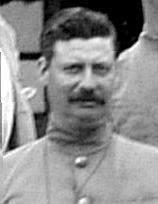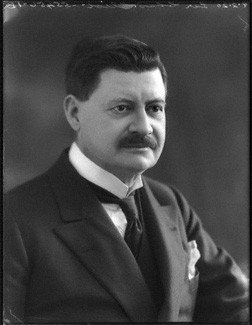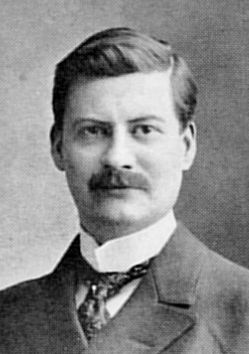View entry
Name: ELIOT, Charles Norton Edgcumbe PC, GCMG, CB, Rt. Hon. Sir



Nee: son of a Wiltshire clergyman
Birth Date: 8 Jan 1862 Sibford Gower, Oxfordshire
Death Date: 16 Mar 1931 at sea between Penang and Colombo between Penang and Colombo
Nationality: British
First Date: 1900
Last Date: 1904
Profession: Commissioner of the EAP, 1900-04. Rhodesia - Grogan - 'the one really brilliant ruler of our destinies in Kenya ...'
Area: Mombasa
Married: unmarried
Author: 'The East Africa Protectorate' 1905
Book Reference: Gillett, Cuckoo, Ainsworth, Permanent Way, Rhodesia, Kenya Diary, White Man, Debrett, EAHB 1905, North, EA Diary 1903, Nicholls, EAHB 1904, Chandler
School: Cheltenham and Balliol College, Oxford
General Information:
Lord Cranworth wrote of him 'He may justly be called the Father of the Colony', for it was he who first conceived the idea of inviting new settlers to take up land in EA on very reasonable terms, to put the country on a more stable footing. This policy was necessary to make the Railway self-supporting instead of being dependent on the British taxpayer. He wanted to inter-mingle the Masai tribe with the European settlements so that the tribe would gradually be educated to a higher standard, but the opposition he received from many quarters to this project was so violent that he felt it was his duty to resign his high office. Thus EA lost a very able and cultured gentleman, a brilliant linguist and author. He had previously served in many parts of the world, including Russia, Morocco, Bulgaria, Serbia, Samoa, Constantinople and Washington.
Permanent Way - 'the first house occupied by His Majesty's Commissioner, Sir Charles Eliot, in Nairobi, was a 3 roomed wood and iron bungalow. This 'Government House' had first been used, towards the end of 1900, by Mr J.W.T. McClellan, then District Officer of Masai and Kikuyu. Previously he had lived in a tent, within a camp stockaded against possible Masai raids which never came ...' ........ 'He had an exceptional gift for languages, and won the Boden Sanskrit Scholarship in 1883 and the Syriac Prize in 1884. In 1886 he took a 'first' in Greats, and was appointed Third Secretary to the Embassy at St. Petersburg, where he quickly learnt to speak Russian with rare fluency. In 1890 he published a Finnish grammar. In 1892 he was appointed Chargé d'Affaires in Morocco, and a year later he was transferred to Constantinople and soon mastered the Turkish language. In 1895 he was Chargé d'Affaires in Bulgaria and, in 1897, in Serbia. The following year Eliot left Constantinople on appointment as Secretary to the British Embassy in Washington. In 1899 he became High Commissioner in Samoa and in 1900 he wrote 'Turkey in Europe', a standard work on the history and philosophy of the Ottoman Empire. Also in 1900, at the age of 38, he was appointed Commissioner for the EA Protectorate and Agent and Consul-General at Zanzibar in succession to Sir Arthur Hardinge. In 1898 he had been appointed a Companion of the Bath and in 1900 a Knight Commander of St. Michael and St. George. Sir Charles Eliot's hobby was marine biology, and he became a recognised authority on the sea slug. Such was the man - scholar, diplomat, linguist, biologist - whose lot it was to guide the first steps of a future colony. ....... he had no use for any form of blood sport, and regarded the killing of wild animals for amusement as akin to crime. ......... He was an apostle of peace and reason, a man of wide scholarship and culture. ...... After his resignation over the Chamberlain/Flemmer grant of land which Eliot had promised and which he was instructed to refuse, he became Vice-Chancellor of Sheffield University and for many years he remained outside the pale of public service. In 1912 he became Principal of the University of Hong Kong, and in 1918 he was appointed His Majesty's High Commissioner in Siberia. In 1919 he was appointed British Ambassador to Japan and a member of the Privy Council. And so, in due course Sir Charles met his reward: but it was a tragedy that the services of such a man should have been lost to his country during the very prime of his life.
Kenya Diary - 1902 - ..... asked me to dine with him this evening. My only clothes were a dirty old shirt and shorts. I explained my predicament and refused, but he insisted on my coming. He is not my idea of a High Commissioner; he looks more like a university don or a priest. He is a scholar, a philosopher and a very able man with great vision. He amazed me with his views on the future of EA. He envisaged a thriving colony of thousands of Europeans with their families, the whole of the country from the Aberdares and Mt. Kenya to the German border divided up into farms; the whole of the Rift Valley cultivated or grazed, and the whole country of Lumbwa, Nandi to Elgon and almost to Baringo under white settlement. He intends to confine the natives to reserves and use them as cheap labour on farms. I suggested that the country belonged to Africans and that their interests must prevail over the interests of strangers. He would not have it; he kept on using the word 'paramount' with reference to the claims of Europeans. I said that some day the African would be educated and armed; that would lead to a clash. Eliot thought that that day was so far distant as not to matter and that by that time the European element would be strong enough to look after themselves; but I am convinced that in the end the Africans will win and that Eliot's policy can lead only to trouble and disappointment. .......….
He is not attractive, though no one denies his very marked ability. He openly dislikes soldiers, which is not encouraging. I should say he is a man completely wrapped up in his work, with little time for aught else. He is out of touch and harmony with the world in general. His pet hobby is the study of Nudibranchs or sea slugs. Never did a man more closely resemble the objects of his hobby. He is invertebrate, with an icy cold nature, unsympathetic, but a scholar of the first rank. His enemies refer to him as a Levantine, judging purely on his outer appearance. I should like to get to know him better, as I feel there must be a great deal behind that cold, untidy and prepossessing countenance. ...... I understand he is tremendously shocked by the nakedness of Africans. ...........
Apr. 1904 - dined with Charles Eliot this evening. ........ He tells me he is having a terrific row with the Foreign Office over white settlement and their ridiculous attitude over grants of land in the Kikuyu country which they regard as an infringement of native rights. Eliot hopes to attract thousands of Europeans to EA and does not appear to accept the fact that natives have any 'rights'. I like Eliot, but after tonight I doubt if he likes me. ..... I spoke to him about the game and its preservation for posterity; he was not interested and said that farming and big game did not mix and that sentiment must not stand in the way of progress!
White Man - 1900 - appointed as HM Commissioner at age 37. Son of a Wiltshire clergyman, he had a brilliant career at Balliol, securing a first in Greats, 4 scholarships, and prizes for essays in Sanskrit, Syrian and other languages. He joined the diplomatic service and went to St. Petersburg, where he learnt Russian in 2 months and published a Finnish grammar when he was 25. Next he was sent to Tangier, where he learnt Arabic in 3 months, and then to Constantinople. He had already mastered Turkish. Just before coming to EA he completed his standard work on the history and philosophy of the Ottoman Empire. .......... 1904 Resigned after a quarrel with Lord Lansdowne. ........ Eliot ordered by F.O. to give the 'EA Syndicate' 500 square miles on easy terms which had been settled in London. He therefore assumed that Lord Lansdowne was not opposed to the alienation of sheep runs in the Rift Valley, and did not hesitate to entertain applications from Robert Chamberlain and A.S. Flemmer (2 S. Africans) for smaller blocks of land near Naivasha. Trouble started when the F.O. mislaid a telegram and then refused to admit their oversight. When Chamberlain and Flemmer first arrived in EA and asked for land Eliot cabled to the Secretary of State asking whether he should encourage them. He followed this up with a despatch. He received no reply to either, and taking silence for assent, started negotiations in the belief that he was acting with his superior's approval. The F.O. subsequently admitted that they had lost the telegram for 6 months. Before the negotiations were concluded Mr F.J. Jackson went to England on leave and interviewed the F.O. He handed in a memorandum stating the case against allowing Europeans to settle on any of the Masai grazing-grounds and criticising the actions of his chief. His complaint came a little too late. One of the grants - the most important - had already been negotiated and sanctioned in London by the Secretary of State. The F.O., however, cabled at once out to the Commissioner a refusal to entertain the remaining two applications, those of Chamberlain and Flemmer. Eliot had gone too far to withdraw. His word had been pledged. He protested strongly against a policy which gave large blocks of free land to an influential syndicate with powerful directors in London but which refused smaller areas to bona fide settlers who were willing to pay for them and who were actually in the country. "Sooner than let this be done under my administration," he wrote, "I will resign the Government service." ......... "should your Lordship prefer to be guided by advice of my subordinates, such as Messrs Jackson and Bagge, I have the honour to tender my resignation." Lord Lansdowne accepted it. Eliot left the diplomatic service to become Vice Chancellor of Sheffield University. Fourteen years later, in 1919 he was appointed British Ambassador to Japan. Eliot was one of those rare Governors who decides on a clear-cut policy and enforces it consistently, declining to yield to pressure from within or to dictation from without, and who yet keep their policy flexible enough to deal with situations as they arise. And, rarer still, he cared more for what he considered to be the interests of the Protectorate he was governing than for his own career.
Debrett - Hon. Fellow of Trinity College 1923; Hon. LLD Edinburgh 1905; Hon. DCL Durham 1908, Hon DLitt Oxford 1923; entered Diplomatic Service 1886; was 3rd Sec. at St. Petersburg 1887-92. Charge d'Affaires in Morocco 1892-3, 2nd Sec at Constantinople 1893, Charge d'Affaires in Bulgaria 1895, and in Servia 1897. 2nd Sec. at Washington 1898, Special High Commr. for Samoa 1899, H.M.'s Commr. and Com.-in-Ch. for EA Protectorate, Agent and Consul-Gen. at Zanzibar 1900-04, a Member of Roy. Commn. on Electoral Reform 1908-9, Vice-Chancellor of Sheffield Univ. 1905-12, Principal and Vice-Chancellor of Univ. of Hong Kong 1912-18; British High Commissioner in Siberia 1918-19, and Ambassador Extraor. and Min. Plen. to japan 1919-26; is a Member of Japanese Imperial Acad.; has 1st class of Japanese Order of the Rising Sun
North - "His pet hobby is the study of Nudbranchs or sea slugs. Never did a man so closely resemble his hobby" (Meinertzhagen, 1957). 'His terror of public opinion is pitiable' (F.J. Jackson, FO 2)
Nicholls - The son of a Wiltshire clergyman, educated at Cheltenham and Balliol College, Oxford, Eliot 'possessed a brain so acute and a memory so retentive (it has not inaptly been compared with flypaper) that no subject, however abstruse, held terrors for him; and what others accomplished only with heavy travail, he took unconcernedly in his stride'.
